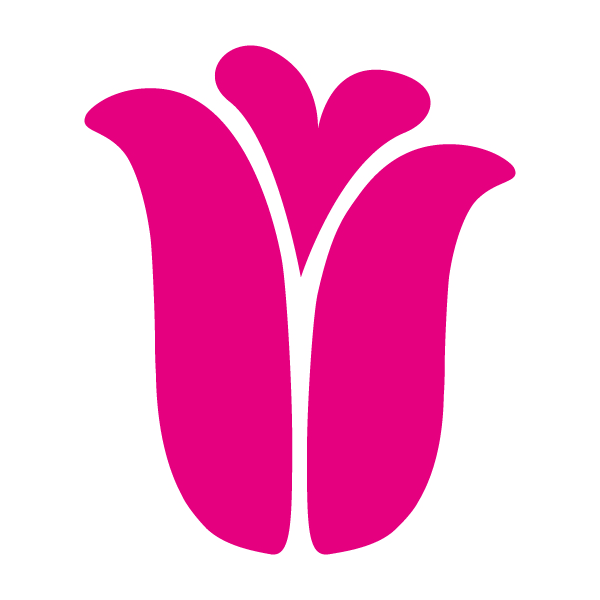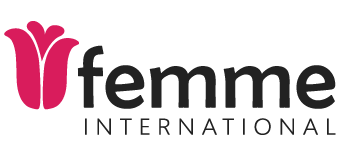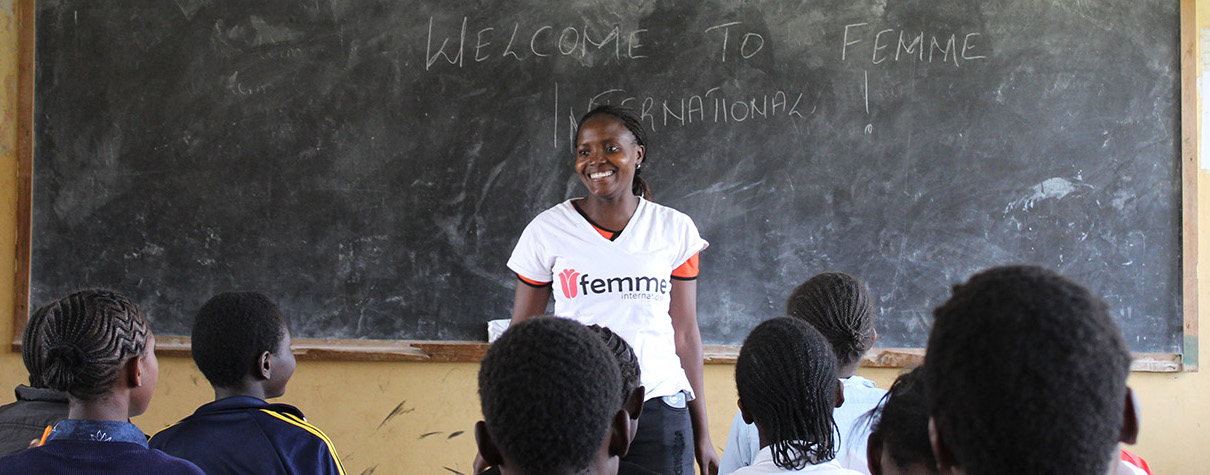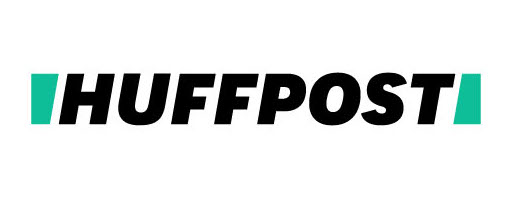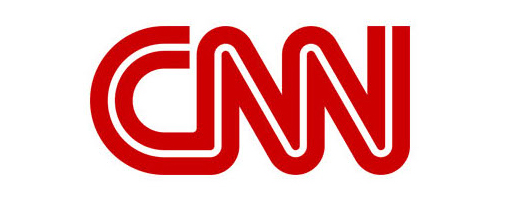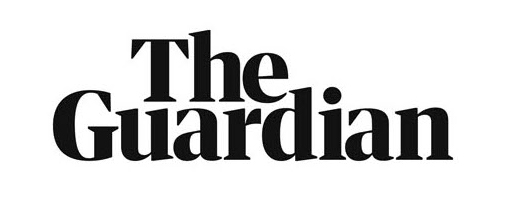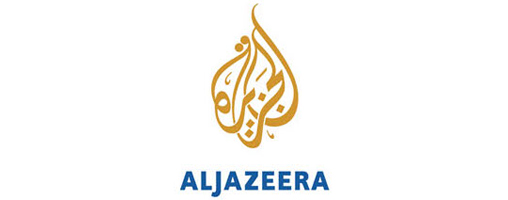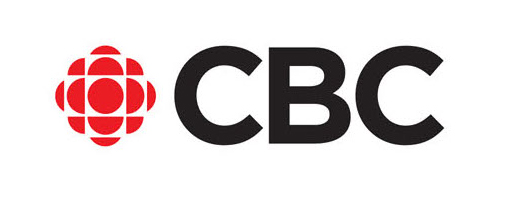The Organization
Who are Femme International’s funders?
Since 2013, Femme has been funded largely by private donations through our website, and small-scale grants from Humber College, Operation Groundswell, Queen’s Players, and Queen’s Players Toronto.
How was Femme International founded?
Femme International was founded in 2013 by Sabrina Rubli and Ornella Marinic while they were completing their postgraduate studies at Humber College in Toronto, Canada. They noticed a gap in menstrual health programming in East Africa and developed the first version of the Twaweza Program with a pilot project in Nairobi’s Mathare Slum. Since the initial project, Femme has grown tremendously and has already impacted over 16,000 women and girls.
Where do the photographs on Femme’s website come from?
All of the photographs featured on our website and various social media channels have been taken by an employee or volunteer of Femme International. The photos are the property of Femme International. All subjects have given permission to have their photos taken.
What are Femme’s long term goals?
Femme is committed to breaking the global menstrual taboo through education and conversation in addition to actively influencing policy whenever possible. We are aiming to impact 100,000 beneficiaries by 2025.
How does Femme measure impact?
We measure impact by collecting both qualitative and quantitative data from beneficiaries. We look at are school attendance, academic performance, and overall self-confidence. Our team does a brief check-in six weeks after workshop delivery. After six months when long term effects are evident, we conduct more rigorous monitoring and evaluation (M&E) activities which include focus groups, questionnaires, and interviews. Our team of local program officers are always available by phone to answer any questions the girls may have and are frequently contacted by the girls after the workshops are complete. The data collected through M&E activities is compared to data collected during the needs assessment.
The Issue
Is menstruation really a taboo subject in East Africa?
Yes. Menstruation is generally a taboo subject in East Africa, particularly in rural areas. While sexual and reproductive health is taught in schools, we have found that menstruation is only briefly discussed. Women and girls are often considered “unclean” while they menstruate and their daily activities are limited by social custom.
Before completing the Twaweza Program, girls have said they felt embarrassed to purchase pads, reveal their period, or talk about their bodies. In some communities, girls are not allowed to stay in their home while they menstruate and must stay with their grandmother.
While progress in breaking this taboo is being made, it is a slow-moving process. Menstruation remains a severely under-addressed public health issue that can have serious health consequences for women and girls.
Does menstruation really affect school attendance for girls?
The extent to which menstruation contributes to deliberate school absenteeism is unclear, but our preliminary research suggests a strong correlation. At Mkombole Secondary School in the village of Mwika, Tanzania, 86% of girls stated that they missed school during menstruation. Additionally, the taboos that surround menstruation often tell girls that their bodies are unclean or dirty during their cycle, which contributes to feelings of shame.
Lowering these rates of absenteeism is one of Femme’s overarching goals. No girl should have to feel as though she can’t attend school during her period.
What are some traditional methods of menstrual management in East Africa?
Traditionally, African women used rags stuffed with cotton to manage their periods, but often they would use nothing at all and remain in their homes for the duration of their period. Other methods of menstrual management that we have encountered include the use of newspaper, leaves, mattress stuffing, or even mud or cow dung. Many of these methods are unhygienic and can lead to serious health issues. Also, they can be extremely uncomfortable and ineffective.
Does Femme work with governments in East Africa?
Yes. Femme is committed to working in collaboration with all levels of local and regional government to achieve our goals. It is essential that our goals are aligned with the goals of the government so we can assist them in achieving their mission. In Kenya, Femme International is a member of the Technical Working Group which advises the Ministry of Health on the creation of a national menstrual health strategy.
Do you work with men and boys at all?
Yes. We strongly believe that men and boys need to be involved in the conversation in order to break the menstrual taboo and achieve gender equality. We also ensure that all male teachers are included in teacher training workshops as they often act as support figures for girls.
Femme Kits
What does it mean to donate a Femme Kit?
All Twaweza Program beneficiaries receive a Femme Kit after taking part in the program. Each Kit contains a comprehensive workbook, a bar of soap in a protective container, a small towel, a bowl for boiling the menstrual cup (to sterilize it), and either a package of reusable pads or a menstrual cup. The contents are delivered inside a bag made by our partners at KiliPads.
The cost of the Kit also covers the training that they receive from our trained program staff, as well as follow-up support and teaching aids. When you make a donation of a Femme Kit, you are ensuring that a woman or girl in East Africa has access to safe menstrual management tools, and the opportunity to participate in the Twaweza Program.
Why do you work with menstrual cups?
We believe that menstrual cups offer a safe and sustainable solution to menstrual management. The cups are made of medical-grade silicone and can be reused for up to ten years, thus removing the ongoing financial burden of menstruation. As an added bonus, this significantly reduces the environmental impact of producing and disposing of a decade’s-worth of conventional menstrual management products.
Menstrual cups can be worn for up to twelve hours at a time, meaning that women and girls don’t have to worry about finding latrines during their cycle. Menstrual cups help women feel free and confident, every day of the month!
Note: Participants in the workshop can choose between receiving a menstrual cup or reusable pads, depending on which option they are most comfortable with. This ensures girls feel agency over their bodies!
Is it difficult to properly clean menstrual cups in communities in East Africa?
Finding clean water is often a major challenge in East Africa. However, cleaning the menstrual cup is not difficult and does not require a large amount of water. The most important thing is for girls to wash their hands with soap before inserting or removing the cup. After removing it, the outside of the cup is clean, and it can just be emptied and re-inserted if clean water is unavailable (or wiped with the clean towel from their Femme Kit).
At the end of her period, the cup must be boiled in water for five minutes. Because the water is boiled, it does not have to be potable.
Our Twaweza Program provides girls with Femme Kits which include soap, a towel, and a bowl for cleaning and boiling their menstrual cups.
Where do you source your reusable pads?
Currently, we are working with AFRIpads, a social enterprise based out of Uganda. AFRIpads are made out of high quality fabric that is extra absorbent, fast drying, and stain resistant. Femme and AFRIpads have been working together since 2014.
Do Femme Kits contain both a menstrual cups and reusable pads?
No. Each Femme Kit contains either a cup or a package of pads. Participants have the opportunity to choose which method is the best fit for them. Menstrual cups are excellent and sustainable solutions, but we recognize that they are not ideal for every woman. We believe that both products offer women safe and sustainable solutions to menstrual management.
Will the girls sell their Femme Kits?
In our experience, we have not encountered girls selling their Femme Kits or any of the products included therein. Once they have completed the Twaweza Program, they have a solid understanding of the economic value and overall importance of the Femme Kit items, and want to keep it. However, this is a risk that we are aware of and something that we keep track of in the monitoring of our programs.
Getting Involved
I would like your program to come to my school/organization/community group. How do we do this?
We are always looking for new partners to collaborate with. If you are interested in taking part in our Training of Trainers program, or having your school or organization trained by our staff, send an email to sabrina@femmeinternational.org!
How can I get involved? Can I volunteer at your East African offices?
There are many ways for you to get involved with Femme and support our mission of women’s empowerment. Become a Student Ambassador, host a fundraiser, or get your company involved as a corporate donor. At this time, we cannot take volunteers to East Africa as we employ local staff to deliver our educational programming. Please reach out to us at info@femmeinternational.org if you have a special skill to offer!
I would like someone from Femme to speak at my event. Is this possible?
Yes. We love talking about all things period-related! We would gladly send a representative to speak at your event about the issue of menstruation and development and the importance of including women in development. Please email Femme’s Director at sabrina@femmeinternational.org.
